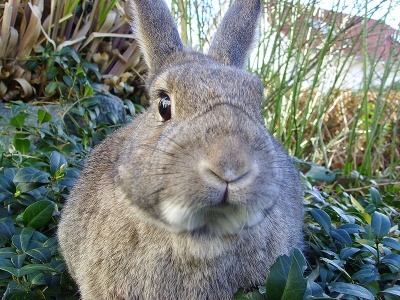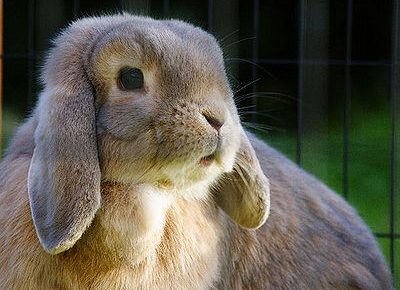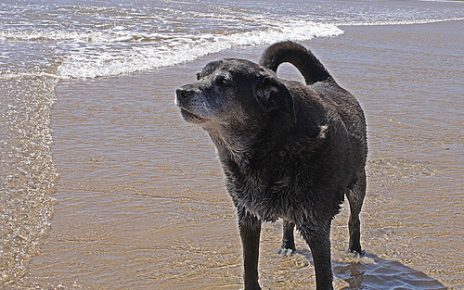
Rabbits may live into their teens and will slow down and be considered elderly at about 5-8 years old. Since pet rabbits are living longer these days, people who adopt rabbits can expect to be caring for an aging pet at some point. Rescue organizations sometimes offer older rabbits for adoption.
Senior rabbits may suffer from obesity, dental problems and other health concerns. Older rabbits may have trouble maintaining their weight. Obesity can lead to heart disease, arthritis, respiratory problems and liver disease. Proper nutrition can help prevent these problems. Senior rabbits should eat unlimited timothy, grass hay, and oat hay. Pellets should be limited to no more than 1/4 cup of pellets per 6 lbs. of body weight per day. They should eat several servings of vegetables a day, mostly dark leafy greens.
Older rabbits may suffer from arthritis and joint pain. To make life easier for a less mobile rabbit, put extra padding in the cage. Decrease the angle of ramps and add more litter boxes. The litter boxes should have lower sides and easy access. See your vet about possible medications and supplements.
As rabbits age, they may sleep more and move around less. They will be less able to handle stress and changes in routine. Although these are normal behaviors it can also be a sign of illness, so see your vet to rule out disease.
Skin abscesses and Pododermatitis, which affects the feet and legs,
can be a problem with older rabbits. A slight case can be remedied with a change of diet and environment, but a more severe case requires medical attention. The incisors and molars of rabbits continue to grow throughout their lifetime. If their top and bottom teeth don’t meet, the teeth may overgrow. This can prevent the rabbit from eating. Your vet can clip or file the teeth. Clogged tear ducts, or runny eyes, are also a problem with older rabbits. Abscesses in and around the eye and cataracts can also occur. Sneezing and nasal discharge may indicate respiratory disease. Coughing, loss of appetite, and weight loss can signal heart disease. A bloody discharge in the urine may indicate uterine cancer. Spaying at a young age will prevent this cancer, which is the most common amongst rabbits. If detected early, removal of the uterus and ovaries may cure the cancer. Changes in urine may indicate a urinary tract infection, and excess drinking and urination could be a symptom of kidney disease.


